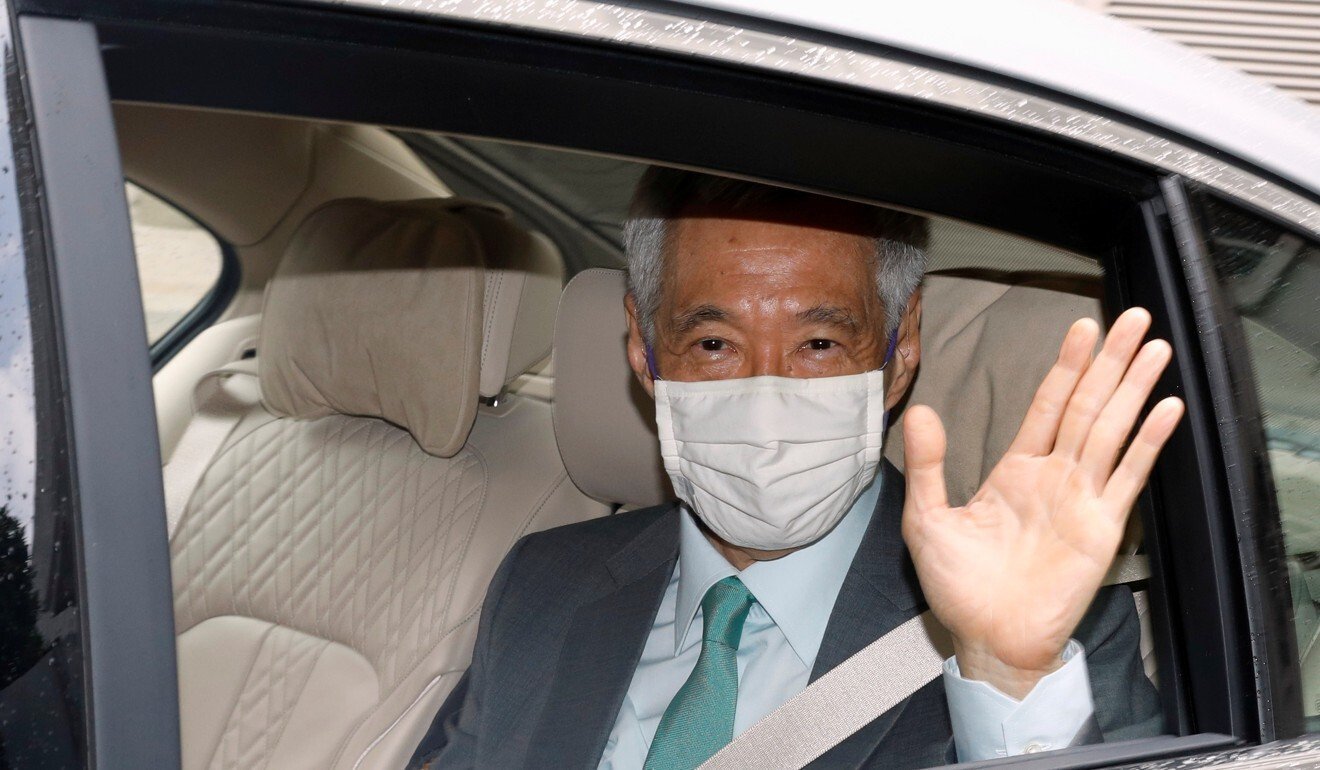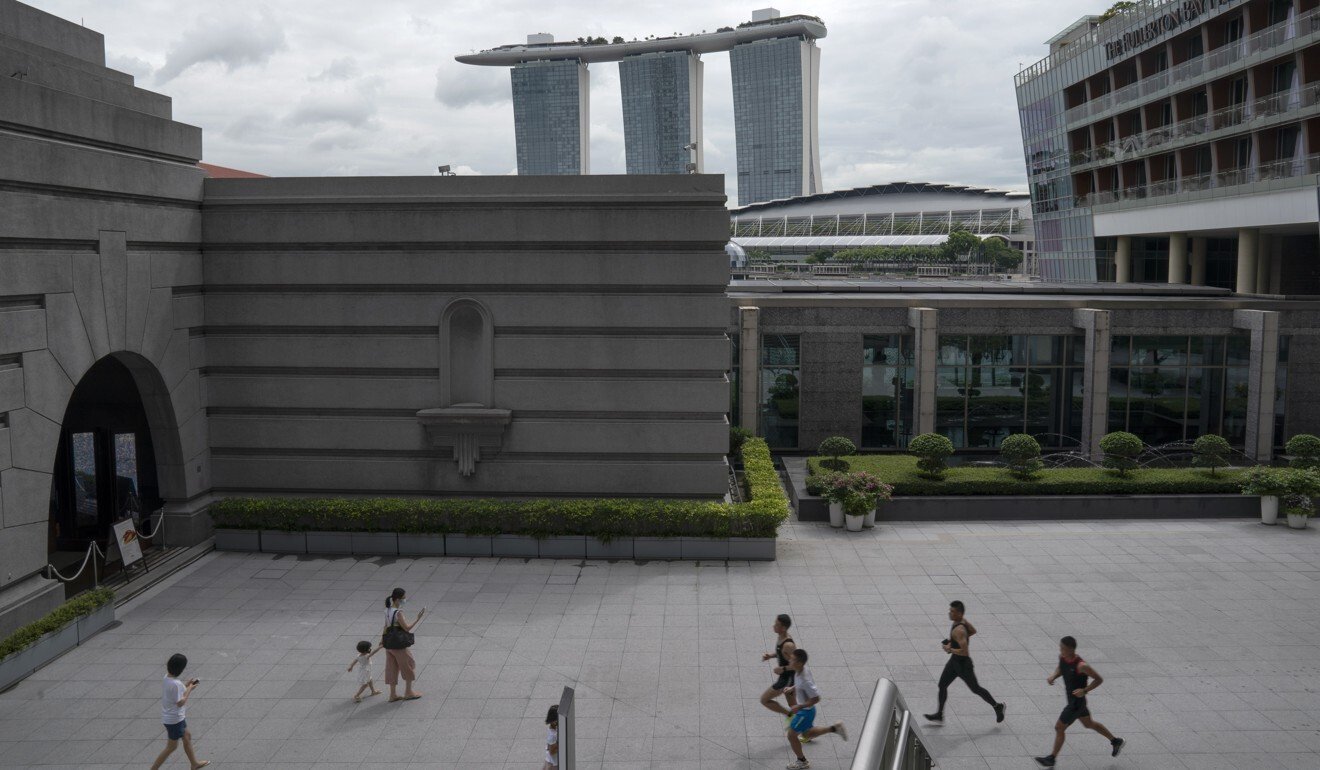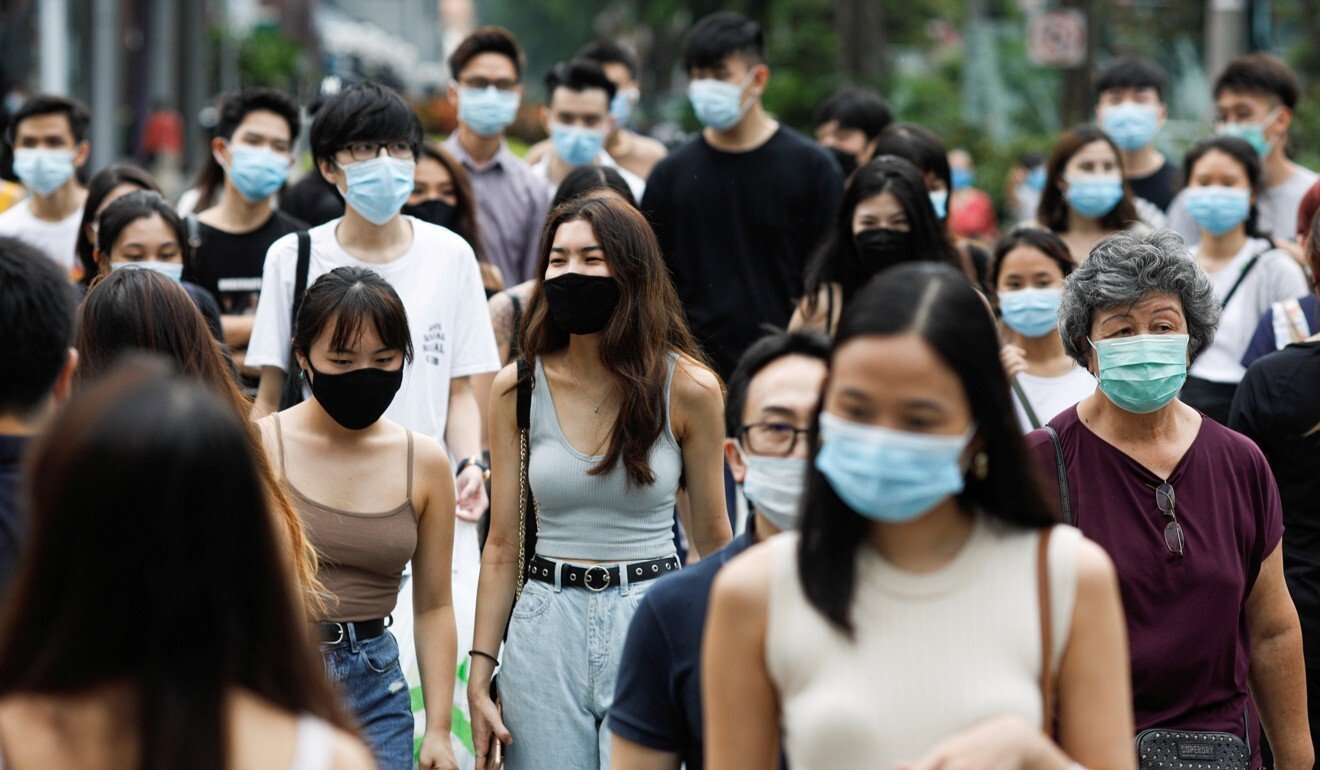
How Singapore went from Covid-19 hero to zero, and back to hero again
Since the coronavirus pandemic swept the globe this year, cities from Asia to the United States and Europe have become stuck in a cycle.
Cases rise, so they lock down. Cases fall, so they ease the measures. Then cases rise again and they lock down once more. Whenever a country thinks it has Covid-19 beat, it seems, it needs to think again.
While Germany, France and England are among countries to have imposed second lockdowns, Hong Kong has shut its schools and work places for a third time this year as the city enters its fourth wave. Even in China, where the virus has been largely contained, there have been flare-ups – such as an outbreak among airport cargo handlers in Shanghai in November.
But there is one major city that appears to have successfully got the virus under control with just one lockdown: the island nation of Singapore.
In the city state of 5.7 million, life has resumed a “new normal ”, in the parlance of politicians. Restaurants and malls are packed once again, happy hours at bars in the central business district do a brisk business and gym bunnies are back pumping iron and hitting the spin studios.
Indeed, the only differences to the pre-Covid era are that people now are wearing masks, there is no alcohol after 10.30pm, nightclubs and karaoke bars remain closed, and social groups are restricted to five people who must keep a metre’s distance. Soon the differences will be even less noticeable; Singapore will further relax its restrictions on December 28, when groups of up to eight will be allowed.
Such happy scenes are a stark contrast to the months of April and May when Singapore went through a strict partial lockdown it called a “circuit breaker”, when schools and workplaces closed, restaurants were allowed only to serve take aways and it was illegal to visit the homes of friends and families.
Back then, its residents were allowed outside only to exercise (alone or with members of the same household) or to visit the supermarket (preferably just one member of the household).
The eight-week circuit breaker was a reaction to a sudden increase in infections, caused when Singaporeans studying and working overseas returned in droves in late February and in March, bringing the virus with them.
Over March, Singapore’s Covid-19 numbers rose tenfold to 1,000. In April, numbers surged further when the virus swept through dormitories housing Singapore’s 323,000 low wage migrant workers. On its worst day, the country recorded 1,426 infections.
The infections put a dent in the reputation of Singapore, which until then had been lauded for its actions in managing the pandemic. Soon media reports were painting the city state’s experience as a cautionary, rather than celebratory, tale.
As Dr Jeremy Lim, an associate professor at the National University of Singapore’s (NUS) Saw Swee Hock School of Public Health, said, paying insufficient attention to the migrant worker dormitories was Singapore’s “biggest misstep”.

Yet fast forward to December and the country has become so successful in containing the virus that it is able to hold conferences with 250 guests and will soon host mass entertainment events such as concerts and pilot the opening of nightclubs.
The World Economic Forum also decided to relocate its Special Annual Meeting next year from the snowy alps of Davos to the tropical city state – only the second time in 49 years that the world famous summit will have been held outside Switzerland.
Singapore is also starting a new travel lane for business people that will allow them to enter the country for a short-term stay without serving quarantine, though its quarantine-free travel bubble with Hong Kong for leisure visitors has been put on hold for now.
Adding to the optimism is the government’s announcement this week that it would receive its first batch of vaccinations from Pfizer-BioNTech before the end of the year and hoped to have enough vaccines – from both Pfizer and other companies – for the entire population by the third quarter of 2021.
Lim said Singapore had undertaken “an incredible mobilisation of resources” to get to its present position.
“Within a few months, what seemed uncontrollable was brought to manageable numbers and the current control we are now enjoying,” he told This Week in Asia.
Singapore has now recorded more than 58,000 infections, but just 86 of those are active. Its death toll is among the lowest in the world, at 29, and in the past two weeks it has recorded only one infection in the community.
Lim said: “Mike Tyson famously said everyone has a plan until they get punched in the face. Singapore has shown she can take the pain and get back up.”
UP OFF THE CANVAS
Health care experts like Lim say it is too early for a post mortem on Singapore’s performance as the battle is ongoing, but acknowledge its success thus far can be attributed to a variety of things: the circuit breaker; keeping migrant workers within the dormitories while waiting for infections to ease; and policies centred on quickly tracing and quarantining the close contacts of those who are sick.
Teo Yik Ying, dean of the Saw Swee Hock School of Public Health, said Singapore’s policies were based on science and evidence as far as possible. Also, “those who flouted the rules and were caught were quickly and publicly punished, the government provided socioeconomic support for the people and many businesses during circuit breaker and beyond, and there was also constant calibration and improvement of interventions, one example being the roll-out of the TraceTogether app and tokens”.
High levels of trust in the government and civil service helped, he added.
This trust meant people were more compliant with the Covid-19 measures. While some Americans refuse to wear masks, citing personal freedom or scepticism about the virus, and Italians in Florence clash with police over lockdown measures, Singapore’s residents have abided by the rules.
As of this month, 65 per cent of the population have joined the TraceTogether programme, which uses either a smartphone app or a token to track movement so authorities can see who has been in close and prolonged contact with an infected person.

For Dr Hsu Li Yang, an infectious diseases doctor who is an associate professor at the same school, it was also important that the government was “not shy to admit that there are gaps and mistakes” and would go on to improve its policies. He cited how when the country relaxed its public restrictions and places such as parks and beaches became overcrowded, the government brought in new regulations to manage the overcrowding.
“This is only possible if there is active monitoring of the situation on the ground, and to make use of the knowledge from this surveillance to improve the effectiveness,” he said.
Singapore also went from allowing returning citizens to serve their quarantines at home, to mandating that be done in a hotel after a few breached their stay-home notices. Another famous policy reversal was its stance on face masks – earlier in the pandemic when the world was experiencing mask shortages and it was still unclear how the virus spread, Singapore had told residents masks were unnecessary.
But as the science changed, so did the government’s advice to the public. On April 3, as Prime Minister Lee Hsien Loong addressed the nation on television to announce the circuit breaker, he cited how the World Health Organisation and the US Centers for Disease Control and Prevention were reviewing their guidelines on masks.
“We will no longer discourage people from wearing masks,” said Lee. The Monday after, it was written into law that masks were now compulsory – unless eating or drinking – and those who did not comply would be fined.
EVERYONE’S A WINNER?
This month, the city state is preparing for its third and final phase of reopening. From December 28, in addition to groups of up to eight people being allowed to gather, malls and restaurants will be allowed to accommodate more customers as their distancing limits go from 10 square metres per person to 8 square metres per person.
Restrictions still apply though for the 323,000 migrant workers from Bangladesh, India and China who live in dormitories, and perform the bulk of the strenuous and low-paid work in industries such as construction.
These workers living in dorms account for almost 94 per cent of Singapore’s 58,341 infections – “the largest humanitarian crisis on Singapore soil”, according to Lim, who is also the vice-chairman of Healthserve, a non-profit group providing health care, counselling, casework and social assistance to migrant workers. Serology tests – which test for previous infections – found a further 98,289 had been infected at some point in time.
In the early days, when the virus was still ravaging the dormitories, the facilities were gazetted as isolation areas, meaning the workers were unable to work and restricted to their rooms. Food had to be delivered to them. As the days, weeks and months passed, some workers suffered mental breakdowns and some attempted suicide.

The situation is slightly brighter now. The men have returned to work, where they must use TraceTogether and take regular tests for the virus, they have access to mental health professionals, and some have been moved to new dormitories with improved living conditions.
While they now still have to shuttle between work sites and dorms – with selected ones going to sanctioned recreation centres – conditions are expected to improve in the new year. From the first quarter, as part of a pilot scheme, workers in some dormitories will be able to return to the community once a month.
A spokesperson for the migrant worker non-profit group Humanitarian Organisation for Migration Economics (Home) said: “While the rest of Singapore returns to normality, the workers are still paying the price for our failures. They should be given back real freedom of movement. Restrictions for public health may be necessary in specific cases, but they should not be imposed on the basis of migration visa status.”
With priority for the vaccination going to health care workers, front-liners, as well as vulnerable patients who do not have any medical contraindications, migrant workers will get the vaccine will get the vaccine in a “phased” approach, with priority given to those without immunity and new workers coming in to Singapore.
A FINAL VICTORY?
With the World Economic Forum expected to be held in May, and with authorities working hard to establish travel bubbles with other countries that have low infection rates, Singapore has to maintain its low infection rates in the long-run. How?
Hsu said that as long as Singapore could sustain its safety measures community infections would remain low.
One problem may be if fatigue sets in. “2020 has been a very long and difficult year for most people. Some degree of fatigue and desire to return to some semblance of old life is totally understandable,” said Lim.
The experts said consistent, frank and clear communication from the government was key to stopping this. For instance, the government had spent months informing Singaporeans of what the third phase of reopening would entail, the additional freedoms they would enjoy, and the indicators the government was taking into account before deciding to press ahead.
Hsu said the government had shown it understood that people were getting tired by announcing on Monday that Phase Three would start on December 28, “as well as the imminent arrival of vaccines that provide greater hope that more of the restrictive measures can be relaxed before the end of another year”.
“There are also constant exhortations to stay vigilant by the government and various civic groups, and also in local media,” he added.
If all else fails, the government has also deployed “an army” of safe distancing ambassadors who will fan out into malls, parks and restaurants to remind people to keep their distance and wear masks, said Teo.
The arrival of the vaccine will also help. The government has said it will be rolled out on a free, but voluntary, basis.
“The intention is to vaccinate anyone who wishes to receive the vaccine. The country is making long-term plans for the eventual return to near-complete normalcy, including for mass market travel, and certainly a high uptake of the vaccine will be part of this plan,” said Teo.
Lim said nationwide vaccinations would help life go back to normal. However, Hsu said complete vaccination was not possible as some groups, such as pregnant women, would not be eligible for the vaccine, while some people might refuse it. Hsu said even mandatory vaccines such as the one for measles were not universally accepted. In the case of the measles vaccine, 5 per cent of children did not take the first dose and 7 per cent or more did not take the second dose.
“Thankfully, it is not necessary to vaccinate the entire population to achieve herd immunity or at least considerable protection for large numbers of people,” said Hsu.
Until then, Teo said, people must remember that the world was facing a pandemic – even if in Singapore the situation was under control.
“In reality, the current situation with very low numbers in Singapore is an artificial scenario made possible only by all the multiple layers of safety nets from the public health, border control, and safe management measures,” he said.
“The moment these layers are lifted, especially those for strict border control, Singapore will experience the same level of large-scale community outbreaks as countries in North America and Europe are currently facing.”











